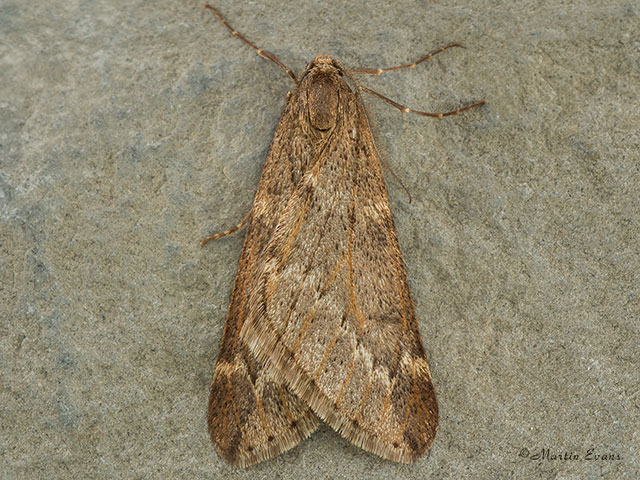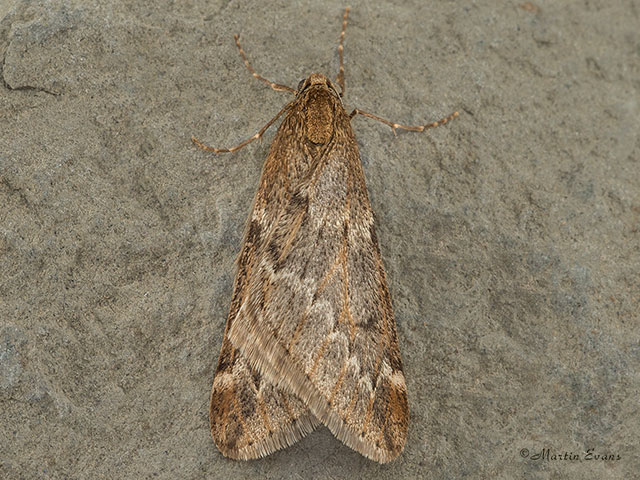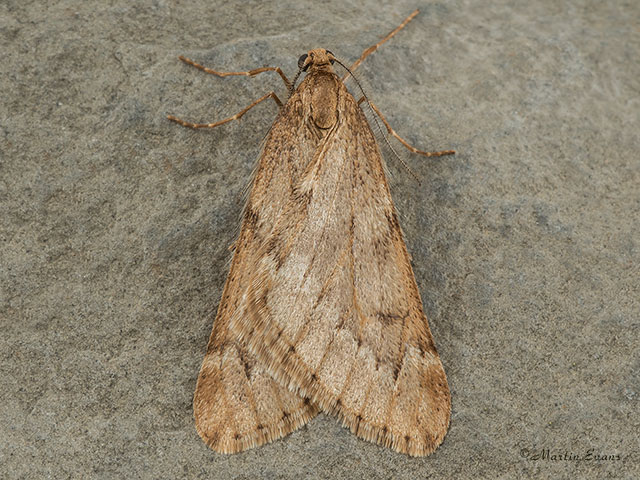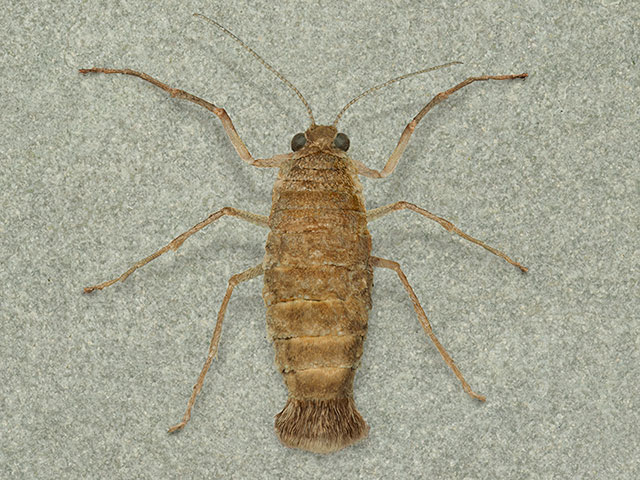Geometridae
70.245 March Moth Alsophila aescularia ([Denis & Schiffermüller], 1775)
Common
Similar species: The male of this species is distinct and is unlikely to be mistaken for other British or Irish species. The completely wingless female lacks long hair-like scales and has a tuft at the end of the abdomen that looks like a shaving brush. These features should separate it from other flightless females which will have either small vestigial wings, long haired abdomens or lack any tuft at the end of the abdomen.
Forewing: 16 to 19mm
Habitats: Deciduous woodland, parkland, scrub, hedgerows and gardens.
Habits: The male comes to light. The female can sometimes be found climbing tree trunks after dark or early in the morning.
Foodplant: The larva feeds on oaks, Hawthorn, Blackthorn, Field Maple, Crab Apple, willows, Silver Birch, Downy Birch and many other deciduous trees. It pupates in a flimsy cocoon in the soil.





